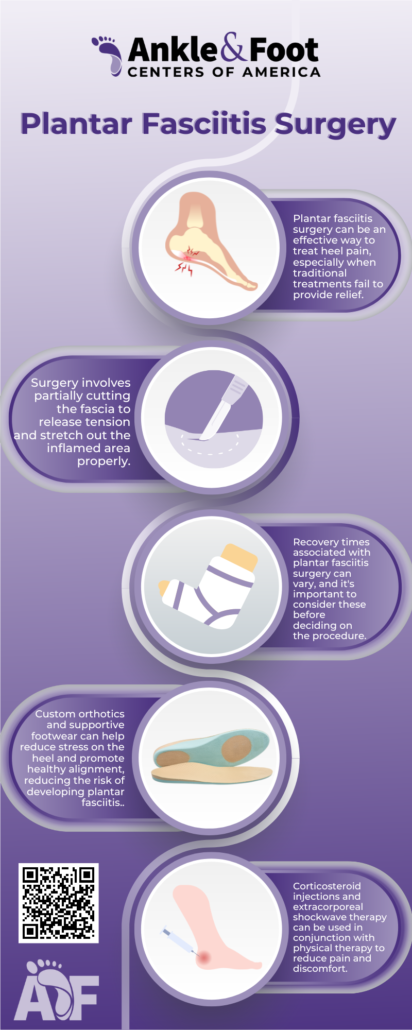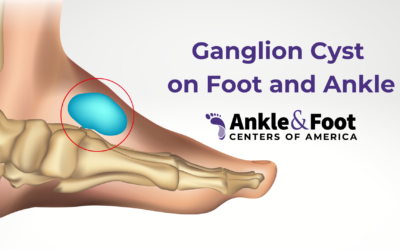Plantar fasciitis is one of the most common causes of heel pain. It involves inflammation of a thick band of tissue, known as the plantar fascia, that runs across the bottom of the foot and connects the heel bone to the toes. This condition can be particularly debilitating, causing sharp pain especially during the first steps in the morning or after prolonged periods of rest.
Nashville’s Active Community
Nashville, often referred to as the “Music City,” is not just known for its rich musical heritage but also for its active community. From marathon runners participating in the annual Rock ‘n’ Roll Nashville Marathon to the passionate dancers grooving to the city’s vibrant music scene, the residents of Nashville are constantly on their feet. Such an active lifestyle, while invigorating, can sometimes put a strain on the feet, making conditions like plantar fasciitis more prevalent.
The Need for Specialized Care
While many might initially turn to general practitioners or orthopedic surgeons when experiencing foot pain, the expertise of a podiatrist is often the most beneficial for conditions like plantar fasciitis. Podiatrists specialize in foot and ankle health, ensuring a more targeted and effective approach to diagnosis and treatment. In a city like Nashville, where the hustle and bustle never cease, having access to specialized care becomes paramount for those seeking relief from persistent foot pain.
Understanding Plantar Fasciitis
Defining Plantar Fasciitis
Plantar fasciitis is a condition characterized by inflammation of the plantar fascia, a thick, web-like ligament that connects the heel to the front of the foot. This ligament acts as a shock absorber, supporting the arch of the foot. However, excessive tension and stress can cause small tears in the fascia, leading to pain and inflammation.
Symptoms to Watch Out For
The hallmark symptom of plantar fasciitis is a stabbing pain near the heel, often most acute during the first steps after waking up. As the foot limbers up, the pain might decrease but can return after long periods of standing or when getting up after sitting for an extended time. Some individuals might also experience pain after exercise, not during. It’s crucial to note that the intensity of pain can vary from a dull ache to a sharp, burning sensation.
Nashville’s Demographics and Lifestyle Contributors
Nashville’s diverse population, ranging from young adults to the elderly, can be susceptible to plantar fasciitis for various reasons. Younger individuals, especially those involved in activities that place a lot of stress on the heel (like running or dancing), might find themselves at risk. On the other hand, older adults might face the condition due to the natural wear and tear of the fascia over time.
The city’s vibrant culture, with its emphasis on music, dance, and outdoor activities, means that many residents are often on their feet. Whether it’s a musician standing for hours during a performance, a server hustling in one of Broadway’s bustling honky-tonks, or a resident taking a jog in Centennial Park, the continuous strain on the feet can contribute to the onset of plantar fasciitis.
Risk Factors
While activity levels and age play a role, other risk factors include:
- Foot Mechanics: Flat feet, a high arch, or even an abnormal walking pattern can affect weight distribution, putting added stress on the plantar fascia.
- Obesity: Extra weight adds more pressure on the plantar fascia, increasing the risk of inflammation.
- Occupation: Jobs that require prolonged standing or walking on hard surfaces can damage the plantar fascia.
- Footwear: Wearing shoes with inadequate support, especially on hard surfaces, can contribute to the onset of plantar fasciitis.
The Role of Podiatrists
A podiatrist is a medical professional specialized in diagnosing, treating, and preventing diseases and conditions of the foot and ankle. Unlike general physicians or even orthopedic surgeons, podiatrists undergo specific training focused solely on the foot and ankle, making them uniquely qualified to address conditions like heel pain related to plantar fasciitis.
Specialized Training and Expertise
Podiatrists complete a Doctor of Podiatric Medicine (DPM) degree, which involves four years of education in podiatric medical school followed by three to four years of hospital residency. This rigorous training equips them with in-depth knowledge of the foot’s anatomy, biomechanics, and the various ailments that can afflict it. Their expertise extends beyond just treating conditions; they also provide guidance on foot care, footwear recommendations, and preventive measures.
Why Choose a Podiatrist for Plantar Fasciitis?
While plantar fasciitis might seem like a straightforward condition, its treatment can be multifaceted. Here’s why a podiatrist’s expertise is invaluable:
- Targeted Diagnosis: Podiatrists use specialized diagnostic tools and techniques, ensuring an accurate diagnosis of plantar fasciitis and ruling out other potential foot ailments.
- Personalized Treatment Plans: Recognizing that every foot is unique, podiatrists craft treatment plans tailored to individual needs, considering factors like lifestyle, activity level, and foot structure.
- Holistic Approach: Beyond just treating the condition, podiatrists offer guidance on preventive measures, footwear choices, and lifestyle modifications to ensure long-term foot health.
Nashville’s Podiatric Excellence
Nashville boasts a commendable array of skilled podiatrists, many of whom have garnered recognition not just locally but nationally. These professionals are well-versed in the latest treatments and technologies, ensuring that residents receive top-tier care. Moreover, with the city’s active community and the resultant foot and ankle issues, Nashville’s podiatrists are adept at handling a high volume of plantar fasciitis cases, further honing their expertise.
Diagnosis by Podiatrists
A Comprehensive Approach to Diagnosis
When it comes to diagnosing plantar fasciitis, podiatrists employ a comprehensive approach that combines clinical examination with advanced diagnostic tools. Their specialized training allows them to identify subtle signs and symptoms that might be overlooked by other healthcare professionals.
Clinical Examination
The first step in the diagnostic process involves a thorough clinical examination. The podiatrist will:
- History Taking: Understand the patient’s symptoms, their onset, any triggering activities, and previous treatments or interventions.
- Physical Examination: Assess the foot for signs of inflammation, tenderness, swelling, or redness. The podiatrist will also evaluate the foot’s arch and overall structure, as abnormalities can contribute to plantar fasciitis.
- Gait Analysis: Observe the patient’s walking pattern. Abnormalities in gait can place undue stress on the plantar fascia, leading to or exacerbating the condition.
Diagnostic Tools Available in Nashville
Nashville’s podiatric clinics are equipped with state-of-the-art diagnostic tools that aid in accurate diagnosis:
- X-rays: While plantar fasciitis is a soft tissue condition and won’t appear on an X-ray, this imaging can rule out other causes of heel pain, such as fractures or bone spurs.
- Ultrasound: This imaging technique visualizes the plantar fascia in real-time, allowing the podiatrist to assess its thickness and check for signs of inflammation.
- MRI: In rare cases where the diagnosis remains unclear, an MRI can provide a detailed view of the foot’s soft tissues, helping to confirm plantar fasciitis or identify other potential issues.
The Importance of Early and Accurate Diagnosis
An early and accurate diagnosis of plantar fasciitis is crucial for several reasons:
- Effective Treatment: The sooner the condition is identified, the earlier treatment can commence, leading to quicker relief and recovery.
- Prevention of Complications: Untreated or improperly treated plantar fasciitis can lead to chronic heel pain, foot abnormalities, or issues in other parts of the body, such as the knees, hips, or back, due to altered gait.
- Tailored Treatment Plans: A precise diagnosis allows the podiatrist to craft a treatment plan that addresses the patient’s unique needs and lifestyle, ensuring optimal outcomes. Of course! Here’s the next section of the article based on the provided outline:
Conservative Treatments Offered by Podiatrists
The Preference for Non-Surgical Interventions
 While surgery is an option for treating plantar fasciitis, podiatrists often lean towards conservative, non-surgical treatments, especially in the initial stages. These treatments can effectively alleviate pain, promote healing, and prevent recurrence, all while avoiding the potential risks and recovery time associated with Plantar Fasciitis Surgery in Nashville.
While surgery is an option for treating plantar fasciitis, podiatrists often lean towards conservative, non-surgical treatments, especially in the initial stages. These treatments can effectively alleviate pain, promote healing, and prevent recurrence, all while avoiding the potential risks and recovery time associated with Plantar Fasciitis Surgery in Nashville.
Foot Stretching Exercises
One of the primary recommendations by podiatrists is foot and calf stretcfhing exercises. These exercises help:
- Relieve Tension: Stretching alleviates tension in the plantar fascia, reducing pain.
- Improve Flexibility: Regular stretching can enhance the flexibility of the foot and calf muscles, preventing further strain on the plantar fascia.
- Promote Healing: Improved blood flow from stretching can aid in faster healing of the inflamed tissue.
Orthoses (Custom Foot Supports)
Custom orthotic devices, tailored to an individual’s foot structure, can provide:
- Arch Support: Proper support can distribute pressure more evenly across the foot, reducing strain on the plantar fascia.
- Shock Absorption: Quality orthoses can cushion the heel and reduce the impact during walking or running.
- Foot Alignment: By aligning the foot properly, orthoses can prevent abnormal gait patterns that exacerbate plantar fasciitis.
Night Splints
Wearing night splints can help maintain the foot in a dorsiflexed position overnight, which:
- Prevents Tightening: The splint prevents the plantar fascia from contracting and tightening during sleep.
- Reduces Morning Pain: By keeping the fascia stretched, patients often experience reduced pain during their first steps in the morning.
Taping
Strategically taping the foot can provide temporary relief by:
- Supporting the Arch: Taping can mimic the support of the arch, reducing strain on the fascia.
- Limiting Movement: Restricting certain foot movements can prevent further irritation of the inflamed tissue.
Extracorporeal Shockwave Therapy (ESWT)
For persistent cases, ESWT can be considered. This treatment:
- Stimulates Healing: The shockwaves can stimulate the body’s natural healing processes.
- Reduces Inflammation: ESWT has been shown to reduce inflammation in the plantar fascia.
- Provides Pain Relief: Many patients report significant pain relief after undergoing ESWT.
When Surgery is Necessary
 Criteria for Surgical Consideration
Criteria for Surgical Consideration
While conservative treatments are effective for many individuals with plantar fasciitis, there are instances where surgery for plantar fasciitis becomes a viable option. Podiatrists consider surgical intervention when:
- Prolonged Pain: Symptoms persist for more than 6 to 12 months despite rigorous conservative treatments.
- Severe Limitation: The pain significantly hampers daily activities, affecting the quality of life.
- Recurring Symptoms: The condition repeatedly returns after periods of relief.
Understanding the Surgical Procedure
The primary surgical procedure for plantar fasciitis is called “plantar fascia release.” This procedure involves:
- Partial Detachment: A section of the plantar fascia ligament is detached from the heel bone.
- Relief from Tension: This detachment reduces the tension in the ligament, alleviating pain and allowing for healing.
- Minimal Invasion: Many podiatrists in Nashville opt for minimally invasive techniques, resulting in smaller incisions, reduced recovery time, and minimal scarring.
Post-Surgical Expectations
After the surgery, patients can expect:
- Initial Immobilization: The foot is often immobilized in a splint or cast for a short period.
- Gradual Weight Bearing: Patients gradually begin to bear weight on the operated foot, starting with minimal pressure and increasing over time.
- Physical Therapy: Rehabilitation exercises, guided by a physical therapist, help restore strength and mobility.
- Full Recovery: Most patients achieve full recovery and can return to their regular activities within a few months.
Frequently Asked Questions (FAQs)
Navigating the complexities of plantar fasciitis can be daunting. To assist readers, here are some frequently asked questions about the condition and its treatment, particularly in the context of Nashville.
Why should one consult a podiatrist for plantar fasciitis in Nashville?
Podiatrists are plantar Fasciitis specialists trained exclusively in the care of the foot and ankle. In Nashville, with its active community and unique lifestyle demands, podiatrists offer tailored treatments considering local nuances. Their expertise ensures accurate diagnosis, effective treatment plans, and comprehensive post-treatment care.
How do podiatrists in Nashville diagnose plantar fasciitis?
Nashville’s podiatrists employ a combination of clinical examination, patient history analysis, and advanced diagnostic tools like X-rays, ultrasound, and occasionally MRI. Their specialized training allows them to discern subtle signs, ensuring an accurate diagnosis.
What non-surgical treatments do podiatrists recommend for plantar fasciitis?
Podiatrists typically recommend a range of conservative treatments, including foot stretching exercises, custom orthoses, night splints, taping, and extracorporeal shockwave therapy (ESWT). The choice of treatment is personalized based on the patient’s specific symptoms, lifestyle, and foot structure.
How do podiatrists in Nashville determine the need for Plantar Fasciitis surgery?
Surgery is considered a last-resort treatment. Plantar Fasciitis Experts in Nashville recommend surgical intervention when conservative treatments fail to provide relief over an extended period (typically 6 to 12 months), when pain severely limits daily activities, or when symptoms repeatedly return after periods of relief.
Are there renowned podiatry clinics in Nashville for plantar fasciitis treatment?
Yes, Nashville is home to several esteemed podiatry clinics known for their expertise in treating plantar fasciitis. Clinics such as the “Nashville Foot and Ankle Group” and “Music City Podiatry” have garnered accolades for their comprehensive care and high success rates.
Conclusion
The Significance of Specialized Care
 Plantar fasciitis, while common, requires a nuanced approach to treatment. As highlighted throughout this article, the expertise of podiatrists, especially in a dynamic city like Nashville, is paramount. Their specialized training, combined with a deep understanding of foot biomechanics, ensures that patients receive the most effective and tailored treatments.
Plantar fasciitis, while common, requires a nuanced approach to treatment. As highlighted throughout this article, the expertise of podiatrists, especially in a dynamic city like Nashville, is paramount. Their specialized training, combined with a deep understanding of foot biomechanics, ensures that patients receive the most effective and tailored treatments.
Nashville’s Unique Position
Nashville’s vibrant culture, from its iconic music scene to its bustling streets, means that its residents lead active lives. Such a lifestyle, while enriching, can sometimes take a toll on the feet. Recognizing the unique demands of the city, Nashville’s podiatrists are equipped to offer treatments that not only address the immediate symptoms but also factor in the city’s distinctive rhythm.
Prioritizing Foot Health
Foot health, often overlooked, plays a crucial role in overall well-being. Conditions like plantar fasciitis, if left untreated, can lead to chronic pain, mobility issues, and a diminished quality of life. It’s essential for individuals, especially those in active communities like Nashville, to prioritize their foot health, seek timely consultations, and adhere to recommended treatments.
Final Thoughts
Plantar fasciitis, with its potential to disrupt daily life, underscores the importance of specialized care. Nashville’s podiatrists stand at the forefront of this care, offering residents a blend of expertise, innovation, and compassion. For those grappling with foot pain, remember that relief is not just possible, but highly probable, with the right care and guidance.




